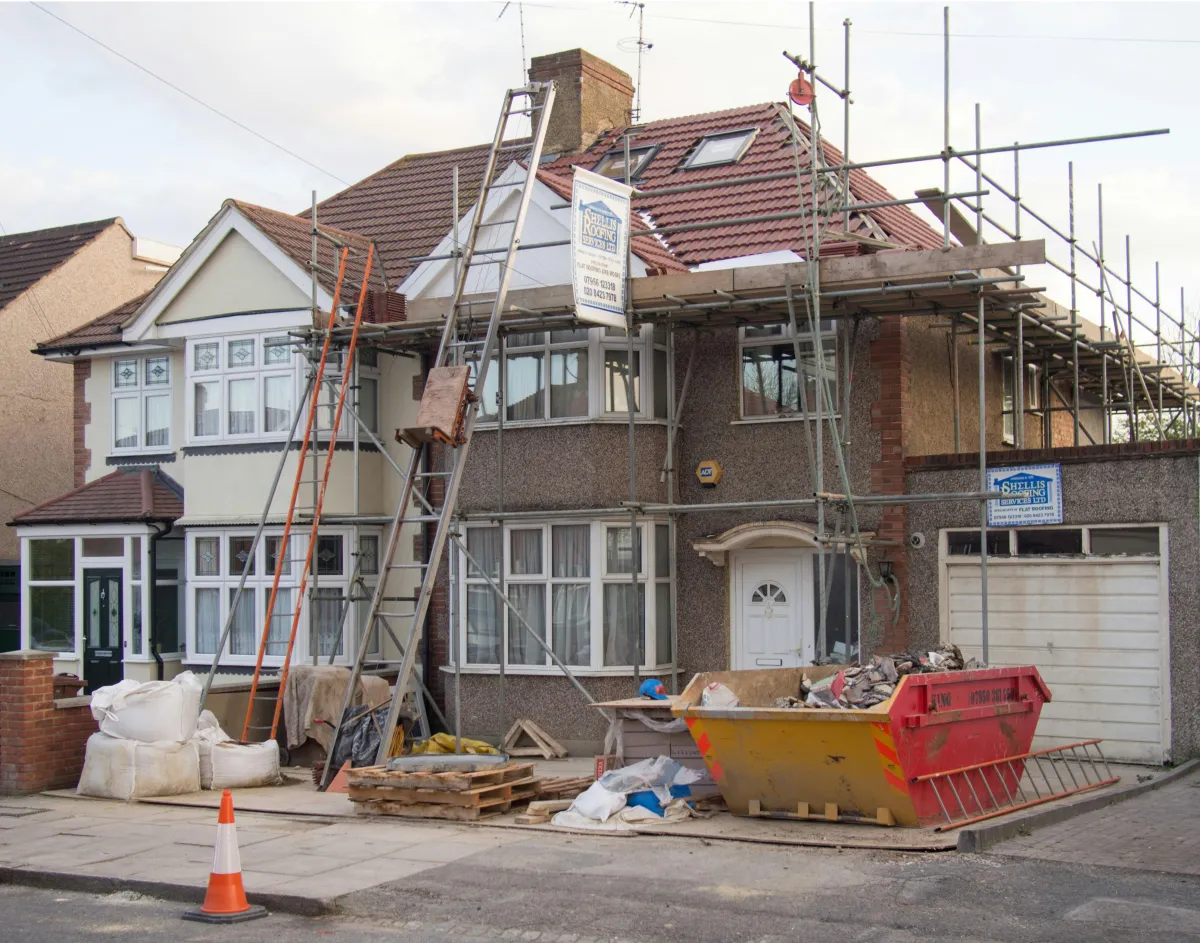
Project Management Techniques for Construction Success
Effective project management is essential for successful construction projects. By employing strategic methods and utilizing advanced tools, construction professionals can enhance efficiency, meet deadlines, and exceed client expectations. This article explores seven key techniques that can drive success in construction management, supported by research and expert insights.
Key Takeaways
Strategic planning and early collaboration lay the foundation for construction success.
Clear communication and thorough documentation streamline project execution.
Proactive risk management and regular quality checks ensure consistent excellence.
Smart resource allocation optimizes efficiency and keeps projects on schedule.
Embracing technology drives innovation and enhances construction outcomes.
Effective Planning and Pre-Construction Preparation

Before breaking ground, successful construction projects are built on a foundation of thorough planning and preparation. Early-stage decisions have a profound impact on the final outcome. From client consultations to detailed pre-construction assessments, aligning expectations and setting realistic goals is crucial for a seamless project. This phase sets the tone for the entire build, helping stakeholders avoid common pitfalls and ensuring the project vision is achievable. A well-structured planning phase lays the groundwork for smooth execution, timely completion, and overall project satisfaction.
Client Collaboration and Vision Alignment
Understanding a client's vision is the first step in crafting a custom home or major remodel. The project management process emphasizes open dialogue, detailed design discussions, and active listening. By ensuring that every stakeholder is on the same page from the outset, potential conflicts and costly changes later are minimized. Clear communication during this phase promotes client confidence and ensures that the project team is fully aligned with the homeowner's expectations. It also helps address feasibility concerns early and build a strong, trusting relationship between all parties involved.
Comprehensive Site Assessments
A detailed site assessment helps identify potential challenges before they arise. Teams evaluate soil conditions, topography, zoning restrictions, and environmental factors specific to the project location. These insights help create realistic construction schedules and budgets, preventing unexpected surprises. A comprehensive evaluation of site logistics, accessibility, and environmental considerations ensures that all design and construction decisions are based on accurate, up-to-date information, minimizing risks and facilitating smoother project execution from the start.
Realistic Budgeting and Scheduling
Setting accurate budgets and timelines is essential to avoid project delays and financial strain. Expert project managers provide clients with a transparent cost breakdown, factoring in material availability, seasonal conditions, and market fluctuations. By creating contingency plans and flexible timelines early on, projects stay on track without compromising quality. Accurate budgeting also helps homeowners plan financing more effectively, while realistic timelines set the proper expectations for project milestones, preventing frustration and costly rush work later.
Streamlined Communication and Documentation

Clear communication and thorough documentation form the backbone of effective project management. In custom construction, especially across competitive markets, keeping everyone informed and accountable ensures that projects progress smoothly. Strong communication practices promote transparency, prevent misunderstandings, and foster teamwork among contractors, subcontractors, architects, and clients. Documentation serves as a reference point, ensuring accountability, legal protection, and quick resolution of disputes if they arise.
Weekly Progress Meetings
Hosting weekly meetings with contractors, architects, and homeowners ensures that everyone remains aligned. These meetings allow for quick identification of potential issues and the opportunity to make swift adjustments. They provide a structured forum for reviewing project milestones, confirming upcoming tasks, and clarifying any design changes or field conditions. Regular meetings enhance collaboration, encourage proactive problem-solving, and keep the construction timeline moving forward without unnecessary interruptions.
Centralized Digital Project Management Tools
Utilizing cutting-edge digital platforms for scheduling, documentation, and communication enhances efficiency and organization. Project management software provides clients and subcontractors with real-time access to construction updates, schedules, and critical documents. These tools ensure that information is centralized, easily accessible, and regularly updated, reducing errors caused by outdated or miscommunicated information. Streamlining communication through digital platforms also increases transparency, fosters collaboration, and enables better decision-making based on real-time project data.
Change Order Management
Changes are inevitable in custom projects. Having a clear, documented process for handling change orders keeps the project moving forward smoothly. All change requests should be formally documented, priced, and approved by the client before proceeding. A consistent change management system prevents scope creep, protects the budget and timeline, and ensures that clients stay fully informed about how changes impact the project. Clear procedures for addressing change orders build client trust and help maintain project momentum even when adjustments are necessary.
Risk Management and Quality Assurance

Every construction project comes with its share of risks, but proactive risk management strategies can minimize their impact. Identifying risks early and implementing quality assurance processes at every stage of construction ensures peace of mind and lasting results. Proactive risk management not only reduces potential financial losses but also improves project outcomes, promotes stakeholder confidence, and demonstrates professional responsibility in managing complex construction endeavors.
Detailed Contract Reviews
Thorough contract reviews help define roles, responsibilities, and expectations before work begins. Project managers meticulously examine every agreement with subcontractors and suppliers to ensure clarity and reduce ambiguity. Well-structured contracts protect all parties, set clear deliverables, and mitigate risks related to cost overruns, timeline delays, or performance disputes. Proper documentation at the outset lays a solid foundation for successful working relationships and effective project execution.
Safety and Compliance Measures
Maintaining high safety standards is a top priority on all construction sites. Adhering strictly to local building codes, OSHA regulations, and any additional community requirements is essential. Regular safety audits and mandatory training sessions help prevent accidents, ensure compliance, and promote a culture of accountability. A strong safety program not only protects workers but also minimizes liability risks and ensures that projects proceed without costly legal or insurance complications.
Regular Quality Inspections
To ensure superior craftsmanship, frequent quality inspections should be conducted at key project milestones. These inspections verify that the work meets not only local standards but also the premium quality expectations of discerning clients. Catching and correcting issues early reduces the need for costly rework and enhances the overall construction process. A strong quality assurance program also demonstrates commitment to excellence and elevates the builder's reputation for delivering superior finished products.
Efficient Resource Allocation and Management

Effective use of resources — including labor, materials, and equipment — is essential for keeping projects on schedule and within budget. Proper resource management ensures that each phase of construction proceeds efficiently, minimizing downtime and maximizing productivity. Balancing cost, quality, and speed requires meticulous planning, coordination, and monitoring throughout the project lifecycle.
Skilled Labor Coordination
Securing and managing skilled labor is critical in the competitive construction landscape. Maintaining strong relationships with top subcontractors and craftsmen ensures that homes are built to the highest standards. Effective labor coordination means scheduling crews appropriately, avoiding work stoppages, and ensuring that specialized tasks are completed by qualified professionals. Proactive labor management results in better workmanship, fewer rework incidents, and a smoother project timeline overall.
Material Procurement and Management
Material shortages can derail even the best-planned projects. Proactive procurement strategies, including early purchasing, vendor partnerships, and alternative sourcing plans, help maintain project momentum. Closely monitoring material deliveries ensures availability exactly when needed, minimizing storage issues and preventing delays. Strategic material management also supports budget control and quality assurance by allowing time to source the best products at competitive prices.
Equipment and Technology Utilization
Access to the right equipment and construction technologies enhances project efficiency. Leveraging modern tools and innovative building techniques tailored to local climates and construction demands boosts productivity and ensures high-quality results. Technology like advanced framing systems, energy-efficient installations, and site management software helps streamline processes, reduce waste, and improve overall project performance.
Client-Centric Approach and Post-Project Support

At Custom Builder Connection, we believe that project success extends beyond the final walkthrough. Building strong, lasting relationships with our clients through proactive support and communication is a hallmark of our approach. We’re proud to serve the Scottsdale and Paradise Valley communities by delivering not just homes, but outstanding client experiences.
Transparent Client Communication
From initial consultation to project completion, maintaining open lines of communication with clients is essential. Regular updates, accessible project dashboards, and responsive service teams ensure that homeowners feel informed and empowered at every stage. Transparent communication builds trust, encourages client engagement, and leads to better decision-making, ultimately resulting in a more successful project and a happier homeowner.
Detailed Project Closeout Procedures
A thorough project closeout process ensures that every detail is addressed before the keys are handed over. Final inspections, comprehensive walk-throughs, punch list completion, and client sign-offs guarantee that expectations are fully met. An organized and transparent closeout phase reinforces the commitment to quality and demonstrates professionalism, leaving clients with a strong final impression.
Warranty Services and Ongoing Support
A builder’s relationship with clients doesn't end at project completion. Offering robust warranty programs and ongoing support addresses any post-construction concerns and builds lasting trust. Providing prompt assistance with adjustments or maintenance questions shows clients that their investment is valued and protected, enhancing the builder's reputation and encouraging future referrals.
Advanced Scheduling Strategies for Seamless Execution

Precise scheduling is vital for ensuring each phase of construction transitions smoothly into the next. Implementing dynamic scheduling strategies tailored to the specific construction environment ensures projects stay efficient and resilient to unexpected challenges. Strong scheduling practices also help coordinate labor, materials, and inspections effectively, keeping projects on track.
Critical Path Method (CPM) Scheduling
Using the Critical Path Method allows project managers to identify the most crucial project tasks and sequence them effectively. By understanding which activities directly impact project timelines, resources can be allocated intelligently to avoid delays. Critical path scheduling highlights time-sensitive activities and helps manage dependencies, improving project visibility and increasing the chances of on-time completion.
Buffer Time Integration
Factoring in buffer periods within the schedule helps accommodate unforeseen circumstances such as weather interruptions or permit delays. Building strategic float times into critical tasks protects project momentum and provides flexibility to adapt to unexpected challenges. This foresight reduces stress, improves client satisfaction, and enhances overall project resilience.
Trade Partner Coordination Meetings
Frequent coordination meetings with trade partners help synchronize efforts and maintain momentum. Real-time updates on site progress, anticipation of scheduling conflicts, and collaborative problem-solving keep work flowing smoothly. Strengthening communication among trade partners also fosters a team-oriented culture, encouraging accountability and quality workmanship throughout the construction project.
Leveraging Technology for Construction Innovation

Technology continues to revolutionize the construction industry, offering new opportunities for improving project outcomes. Embracing technological advancements helps builders deliver superior results, streamline operations, and enhance client satisfaction. Incorporating technology thoughtfully into construction processes provides a competitive edge in today's market.
Building Information Modeling (BIM)
BIM technology allows teams to create detailed digital representations of construction projects before physical work begins. These models enable better visualization, early clash detection, and more informed decision-making. BIM promotes efficiency, reduces rework, and allows clients to gain a clearer understanding of their future homes, leading to more confident design approvals and fewer mid-project changes.
Drones for Site Surveys and Inspections
Using drone technology, teams can conduct rapid, accurate site surveys and monitor ongoing progress from new perspectives. Drones improve safety by reducing the need for manual inspections in hazardous areas and provide detailed imagery that supports real-time project adjustments. Enhanced visibility boosts quality control efforts and allows project managers to address issues proactively, saving time and resources.
Smart Home Integration Planning
As smart home features become more popular, early integration planning is critical. Collaborating with technology specialists during the design phase ensures that automation, security, and energy-efficient systems are seamlessly incorporated. Planning for smart home technology early minimizes retrofitting costs, improves functionality, and aligns the finished home with the evolving expectations of today's tech-savvy homeowners.
Conclusion
By combining meticulous planning, effective communication, proactive risk management, efficient resource allocation, innovative technology, and a client-focused mindset, construction professionals can achieve outstanding success. Implementing these advanced project management techniques ensures that construction projects are completed efficiently, safely, and to the highest standards, delivering exceptional experiences for clients and building strong reputations within the industry.


